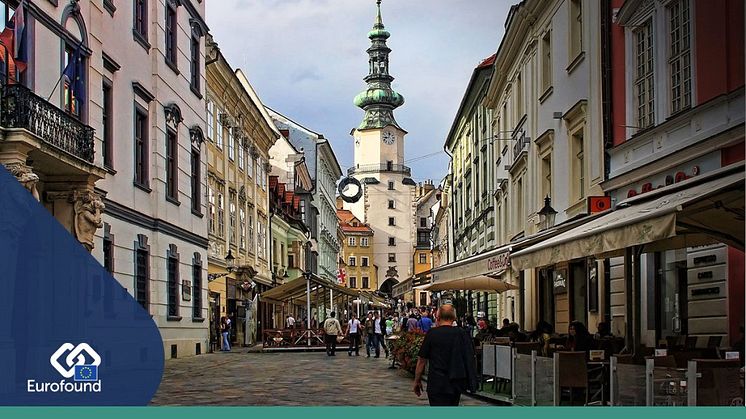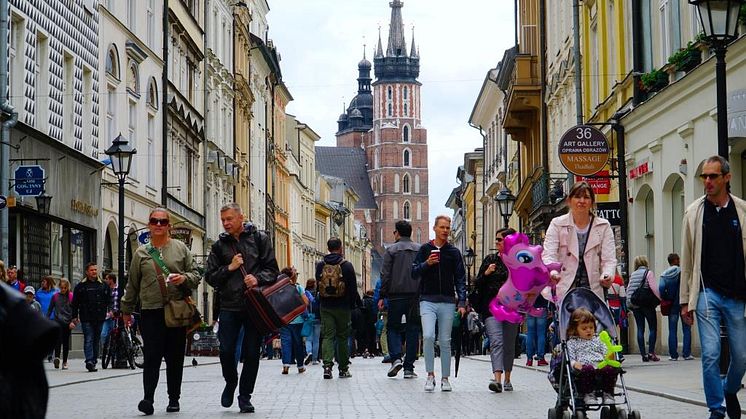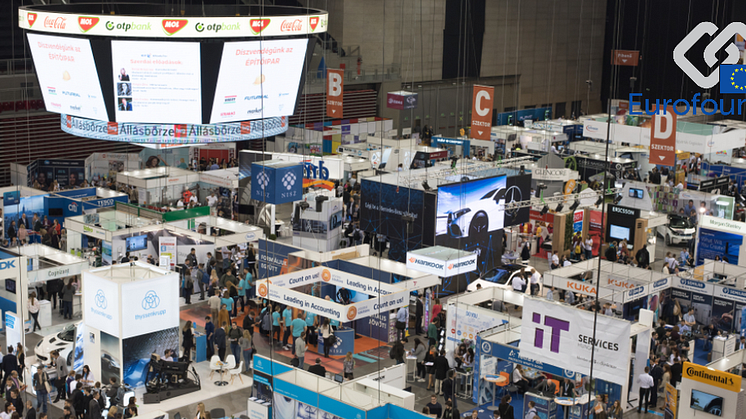15 years of EU membership and 80% of Slovaks feel European
As Slovakia tomorrow celebrates Slovak National Uprising Day, we mark the day by shining a spotlight on the ever-improving living and working conditions in Slovakia.

As Slovakia tomorrow celebrates Slovak National Uprising Day, we mark the day by shining a spotlight on the ever-improving living and working conditions in Slovakia.

The latest Annual Review of minimum wages in Europe shows that there have been increases to the minimum wage across almost all Member States, in both nominal and real terms. The report also highlights that women are over-represented among minimum and low-wage earners.

La última revisión anual de los salarios mínimos en Europa muestra que se han producido aumentos significativos en los salarios mínimos de varios Estados miembros de la UE, tanto en términos nominales como reales.

La plupart des États membres de l'UE ont enregistré des hausses de salaires pour les bénéficiaires de salaire minimum et les bas salaires, les salaires minimums et les bas salaires ont en effet progressé dans la plupart d'entre eux, du fait de l’augmentation des salaires minima légaux qui ont augmenté dans presque tous les pays depuis janvier 2018.

The votes have been cast, tallied and declared and we can now see the political landscape of the new European Parliament. To what extent have mixed developments in employment and quality of life contributed to the more fractured political landscape? And can the EU continue to deliver to the more diverse demands of citizens across Europe?

As citizens across the EU prepare to cast their vote in the European elections, the latest Living and working in Europe report from Eurofound looks at how work and life has changed in the EU since 2015.

People at work in Europe report good health and well-being, and increased control over their work activities. However, Eurofound data shows that work is also becoming more emotionally demanding, which poses a risk to health, as well as the long-term sustainability of work itself.

Imagine you’re at work and something happens: you have to leave to visit a client, you have to go home to let in the plumber, or you have to collect the kids from school as the football training has just been cancelled. If you’re lucky, your employer gives you the flexibility to do this. If you’re even luckier, it is YOU who decides upon your schedule and place of work.

Despite differences in economic structure, labour markets and development, a pioneering study of the working conditions and job quality of 1.2 billion workers finds common concerns and challenges across 41 countries and four continents, according to a new report from the International Labour Organization and Eurofound.

Large scale restructuring involving job loss is usually well-documented, and there is rightly a focus on what options there are for those who have lost their jobs. But what impact does all this have on those that are left behind?

Seniority entitlements have largely been on the decline since the 1990s, and have been gradually phased-out from legislation in Europe, as well as in collective agreements. However, it would be premature to dismiss seniority-based entitlements as a thing of the past, as they remain in force across Europe, even if the more expansive term of ‘relevant experience’ is preferred.

Motivated workers have higher levels of engagement, better health and are able to work longer. Improving motivation at work is therefore a key component in meeting the challenges of Europe’s ageing workforce and improving the EU’s long-term competitiveness on a global scale. This means that fostering motivation at work isn’t just about personal or business success, it's about Europe’s success.

On 26 May 1975 the Council passed Regulation (EEC) No 1365/75 on the creation of a new Agency that would aim to contribute to the planning and establishment of better living and working conditions. Now, almost 44 years later, the Founding Regulation of Eurofound gets a 21st Century update.

We want to thank you for your support and wish you and your family a peaceful Christmas and a happy New Year.

Structural change is expected to move much faster in the Member States who joined the Union after 2004, and we forecast big changes in the occupational wage and task structure in these countries in the run up to 2030.

Europe is back on track towards upward convergence, but some outliers remain.

Quality of life is improving in Ireland, particularly in relation to social cohesion, with the country recording some of the highest levels optimism in the EU and lowest reported levels of tension between racial and ethnic groups. However, a number of challenges remain, notably in public transport, childcare services, and social housing – all of which are rated below EU averages.

Eurofound Director Juan Menéndez-Valdés will present to the Oireachtas Joint Committee on EU Affairs at 14:00 GMT on Wednesday 12 December. The presentation will look at Ireland-specific data from the European Quality of Life Survey and European Working Conditions Survey.

There has been an overall improvement in the employment and social situation of people with disabilities in the EU, with more people with disabilities in employment and actively participating in society in 2016 than 2011. However, disabled people are still significantly less likely to be in employment than people without disabilities, and they remain among the most disadvantaged groups in Europe.

Unemployment in the EU is continuing to fall, with the rate approaching its 2008 low point. This is good news: the Europe 2020 target of 75% employment in the working age population is now in sight for many Member States. However, as unemployment reaches new lows, the opposite problem is emerging – labour shortages
